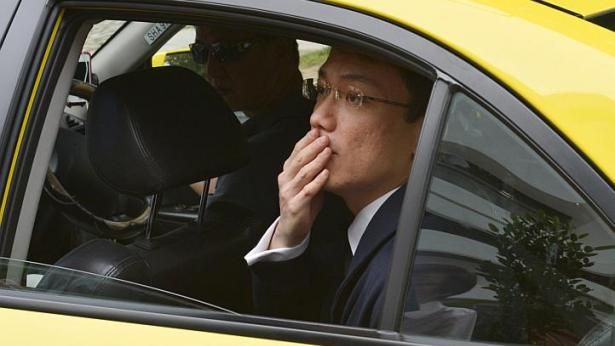Note 16: Judge censored defence some witnesses
It is reported: "Law professor Tey Tsun Hang has been allowed to call 16 witnesses for his defence when the sex-for-grades corruption trial resumes next month. Tey, who is conducting his own defence, had initially drawn up a list of 22 people."; "Tey arrived at the Subordinate Courts yesterday for a closed-door hearing on the witness list. Of the 16 approved, five are expected to testify in the trial within a trial. They include Alexandra Hospital doctors and NUS law dean Simon Chesterman.": http://www.straitstimes.com/breakin...-trial-tey-call-16-witnesses-defence-20130305
Questions:
Why did the judge decide to take it upon himself to censor the defence witnesses;
During the first part of trial in January 2013, the prosecution was allowed to change its witnesses all the time; there was no mention in the January trial that the Prosecution had to seek the judge's approval to call its witnesses;
Why was the defence not allowed to do the same, and has to have its witnesses pre-censored?
Why conduct this in-chambers, and not in the court?
Now, we do not even know what the 6 other witnesses were not allowed - who are these 6 witnesses not allowed to come to court?
Did the Prosecution object to the 6 witnesses, and the judge agreed to censor them? If so, why?
Why no transparency?
It is reported: "Law professor Tey Tsun Hang has been allowed to call 16 witnesses for his defence when the sex-for-grades corruption trial resumes next month. Tey, who is conducting his own defence, had initially drawn up a list of 22 people."; "Tey arrived at the Subordinate Courts yesterday for a closed-door hearing on the witness list. Of the 16 approved, five are expected to testify in the trial within a trial. They include Alexandra Hospital doctors and NUS law dean Simon Chesterman.": http://www.straitstimes.com/breakin...-trial-tey-call-16-witnesses-defence-20130305
Questions:
Why did the judge decide to take it upon himself to censor the defence witnesses;
During the first part of trial in January 2013, the prosecution was allowed to change its witnesses all the time; there was no mention in the January trial that the Prosecution had to seek the judge's approval to call its witnesses;
Why was the defence not allowed to do the same, and has to have its witnesses pre-censored?
Why conduct this in-chambers, and not in the court?
Now, we do not even know what the 6 other witnesses were not allowed - who are these 6 witnesses not allowed to come to court?
Did the Prosecution object to the 6 witnesses, and the judge agreed to censor them? If so, why?
Why no transparency?




